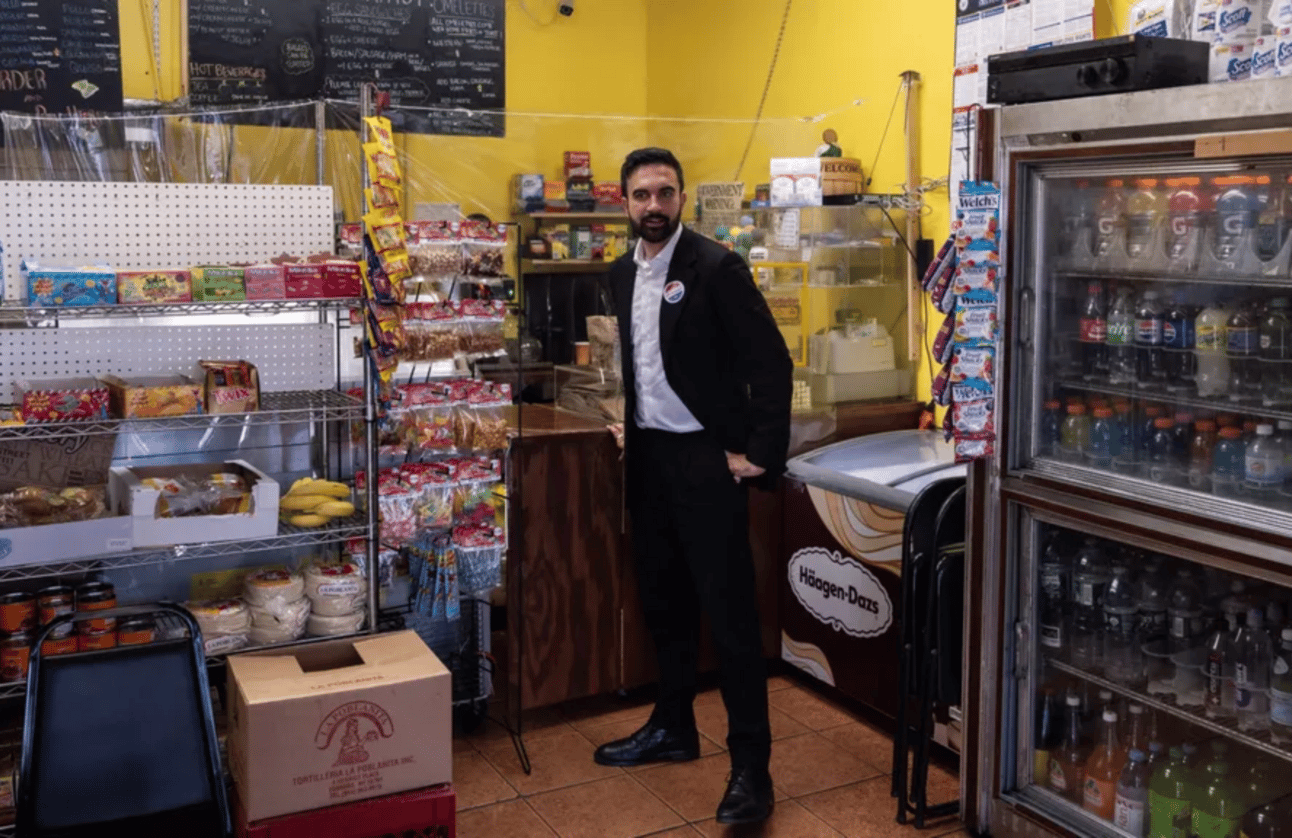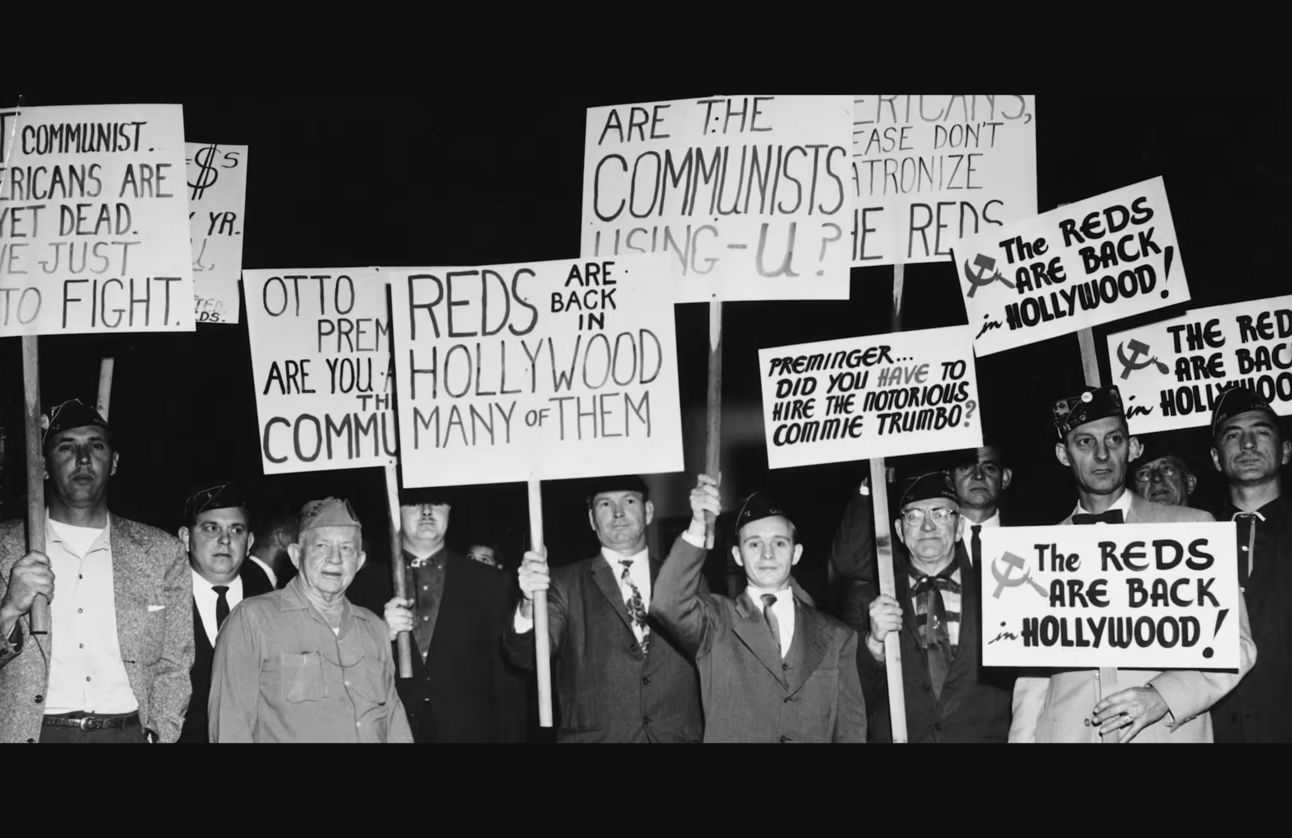- The Money Trails
- Posts
- Why Americans Fear Socialism More Than Corporate Monopolies
Why Americans Fear Socialism More Than Corporate Monopolies
How Zohran Mamdani's grocery store proposal triggered America's socialism fears

 |  |  |
What’s in This Week’s Issue…
Good morning. America has fought wars to stop socialism. It’s toppled foreign governments for it. And for over a century, it’s treated any government-run business as a threat to free markets and the American way of life.
But something strange is happening.
In New York City, a self-declared socialist just won the Democratic primary for mayor by proposing something unthinkable by U.S. standards: State-owned grocery stores.
To most voters, this feels like a quirky local issue. But it’s not. It’s the latest crack in a much larger economic and political fault line that’s been building for years.
So this week…
🏆 The Big Play: Why America fears socialism so much, and why that fear is now breaking down
💪 The Power Move: What the return of state-owned ideas means for you and your wallet
💵 Follow the Money: How wages from U.S. companies funded North Korean weapons
-GEN
🏆 The Big Play
The biggest money power story of the week.
How America’s War on Socialism Got Its First Grocery Store Battle

Zohran Mamdani visiting a deli in Queens, New York
There’s a reason the phrase “state-owned” triggers Americans like few others.
For decades, government-owned businesses were framed as the first step toward authoritarianism, inefficiency, and economic collapse.
But in 2025, in the middle of the world’s biggest capitalist economy, a political candidate just ran and won on a promise to build them.
So, how did we get here?
Since the early 20th century, the U.S. government has treated socialism as both an external enemy and an internal threat.
It started with the First Red Scare in 1919, when leftist labor leaders and anti-war activists were surveilled, jailed, or deported.
It escalated during the Cold War, with McCarthyism turning accusations of socialism into political death sentences.
And the government didn’t stop at its own borders:
In 1954, the U.S. orchestrated a coup in Guatemala to protect corporate land interests from a socialist government.
In 1973, it backed the military overthrow of Salvador Allende in Chile, Latin America’s first democratically elected Marxist president.
And during the entire Cold War, the CIA and State Department poured billions into stopping leftist governments from rising anywhere in the world.
Domestically, the same playbook ran through policy:
Welfare programs were stigmatized.
Public ownership was minimized.
Even Amtrak and the USPS became punching bags for "government inefficiency."
For generations, the message was clear: State-owned businesses are bad economics and worse politics.
But now, for the first time in decades, that wall is cracking.
2. Why the Grocery Store Became Ground Zero
Zohran Mamdani’s flagship proposal is a publicly owned chain of grocery stores.
On paper, the goal is to fight food deserts and bring affordable groceries to low-income neighborhoods where private chains have pulled out.
But here’s why this has Wall Street, big grocers, and free-market advocates quietly panicking:
Food retail is a $8 trillion industry in the U.S., dominated by private equity-backed chains like Walmart, Kroger, and Albertsons.
State-run grocery stores threaten that market, not by beating them on margins, but by introducing a publicly funded competitor with no profit motive.
And historically, when government enters a market, private capital tends to resist or lobby aggressively to block it.
Their deepest fear is that grocery stores are just the first step. Because once you justify public ownership in food, it opens the door to housing, healthcare, and transportation.
Already, other city governments are watching. And socialist and progressive groups are signaling support for similar models in Chicago, Los Angeles, and even Texas towns.
So, this isn’t just a grocery debate. It’s a referendum on the boundaries of American capitalism.
3. Why This Could Be the Beginning of a Much Bigger Shift
What makes this moment different is that younger Americans simply don’t buy the anti-socialist scare tactics anymore.
Surveys show nearly half of Millennials and Gen Z now view socialism favorably.
For them, socialism doesn’t mean gulags. It means student debt cancellation, affordable housing, climate action, and yes, cheap groceries.
Their reality is defined by:
High student loan balances
Unaffordable rents
Climate crisis anxiety
And social media, especially TikTok, Reddit, and Instagram, have flooded their feeds with leftist commentary, economic explainers, and critiques of corporate power.
To them, a government-run grocery store feels less like a socialist takeover and more like common sense. That’s why Mamdani’s proposal caught fire with young voters.
So, are state-owned grocery stores a bad idea?
That’s still up for debate. But here’s what’s certain: For the first time in decades, America’s war over socialism isn’t about foreign threats.
It’s about domestic demand. And the frontlines might now run through a supermarket aisle in Queens.
💪 The Power Moves
Playbook for understanding the game of power.
What This Means for You and Your Wallet

A protest against communism in Hollywood (Red Scare)
For years, the biggest ideological divide in America was tax rates. Now it’s about who gets to own and control the essentials of life.
Grocery stores, the internet, healthcare, and housing aren’t just services. They are power centers.
And the Mamdani fight shows something important:
→ Old ideological walls are crumbling.
→ Young voters are shifting the Overton window.
→ And public ownership is no longer unthinkable.
So, if you’re trying to read where American politics and, by extension, American capitalism are headed next, pay attention to the fights that look small but trigger outsized fear.
And understand that these debates, while sound abstract, might show up on your bills and your investment portfolio.
The Takeaway:
The biggest political and economic battles of the next decade won’t be fought in Washington or Wall Street boardrooms.
They’ll be fought over grocery aisles, housing blocks, internet cables, and hospital billing departments.
And whether you’re for it or against it, one thing is clear: the war over who controls America’s essentials has already started.
💵 Following the Money
Three of the wildest financial and corruption stories from around the world.

King Jong Un visiting a ballistic missile launcher
#3 - The Sinking Island: Residents of Tuvalu seek escape to Australia as the island country continues to sink
✨ Poll time!
Do you think the government should run grocery stores in low-income areas where private businesses won’t? |


